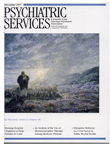Mad House: Growing Up in the Shadow of Mentally Ill Siblings
"Few of us remain unscathed if our family has experienced the trauma of a family member's breakdown," writes Clea Simon three-quarters of the way through her hybrid volume, Mad House: Growing Up in the Shadow of Mentally Ill Siblings. Simon, a freelance journalist, is the much younger sister of two siblings whose mental illnesses shaped life in the family's Long Island home when they were growing up. Her book is part memoir and part survey, relating her experiences to those of other siblings she interviewed.
The author's focus is on herself. She describes the passive, bewildered preteen on whom both her brother and sister inflict damaging, at times violent, behavior. She picks out the forgotten child of parents too preoccupied with the problems of their older, mentally ill offspring. And she profiles the adult, given to self-destructive behavior that is traceable to her psychological development in an environment distorted by both the presence and the insufficiently explained absences of her brother and sister. Oddly, the views Simon presents of her brother and sister are without much depth, as she examines them largely for what they did to her.
For all the early trauma and pain she describes, Simon has managed to steer her life to a pretty good place. She has come to terms with her siblings' illness, and she has embarked on a positive relationship. She is getting on with her own life. But, she takes pains to show the reader, it was not easy. The key for her was submission to extensive psychotherapy. Only through a methodical peeling away of defenses and disguises, she concludes, was she able to find the happiness and fulfillment available to those who were spared the self-doubt and alienation brought on by siblings' illness.
The thesis is that similar experiences bring predictable and common responses among siblings of people with mental illnesses. Simon's interviews with numerous other siblings, as well as with acknowledged experts such as Joyce Burland and Julie Tallard Johnson, demonstrate that there is indeed an eerie similarity in the inability of so many siblings to form trusting personal relationships or to find meaningful professional careers.
Yet the interviews themselves show that the exceptions outnumber the rules. The sibling experience shows many faces, but the reader of this book may feel that Simon does not recognize them equally. Because she sees and feels her own experience so intensely, Simon has difficulty looking beyond the boundaries of her own development to consider the paths pursued by other siblings.
Still, Mad House is an honest account and a useful overview of the issues confronting siblings of people with mental illness. Many siblings will surely take comfort in its familiar resonance. But the readers on whom it may have the greatest effect—and those for whom Simon may really have written this book—are the parents. The book's ultimate claim is that the needs of the healthy children are real and are overlooked only at considerable cost.
Mr. Emmet is chief operating officer for the National Alliance for the Mentally Ill in Arlington, Virginia.



